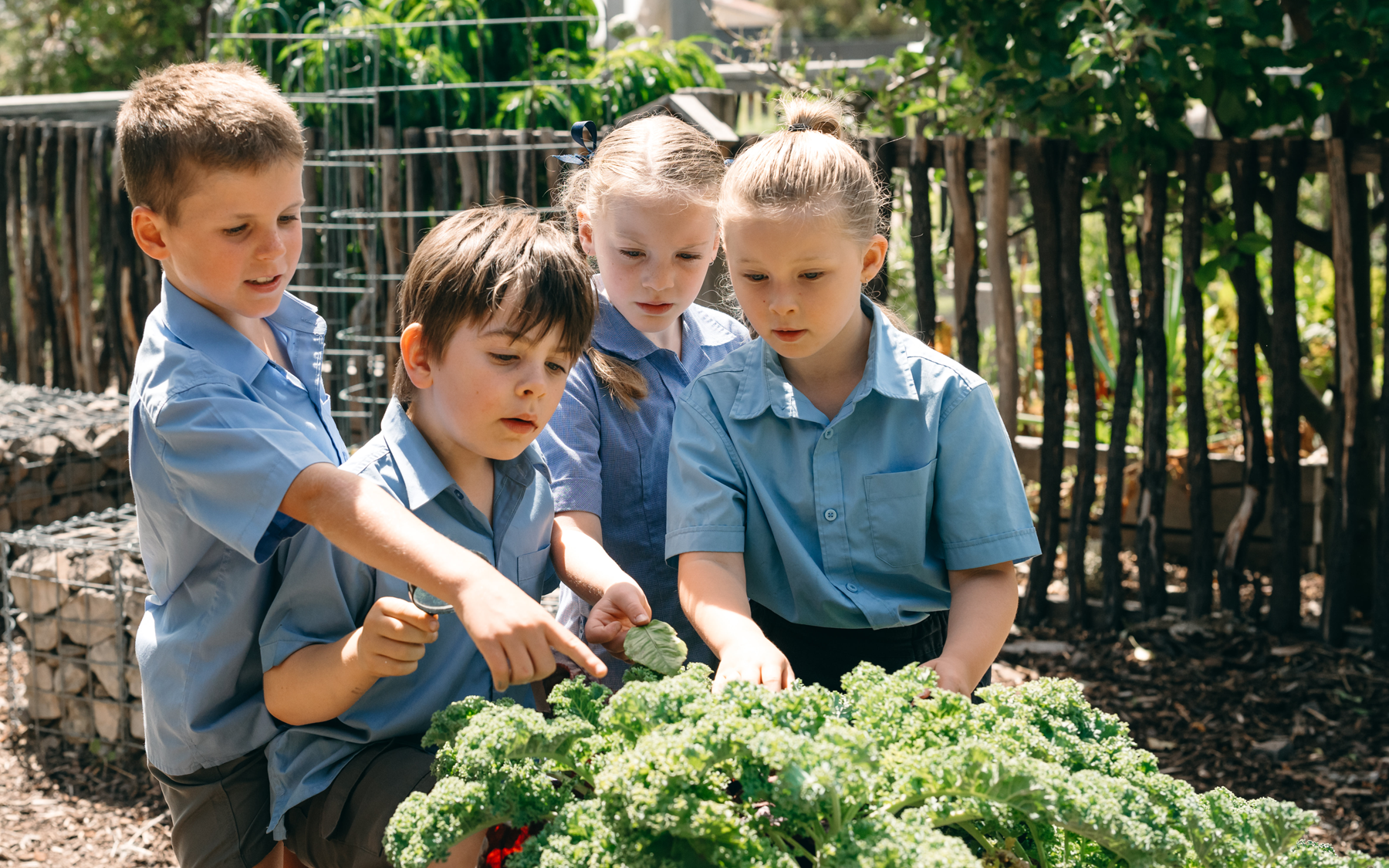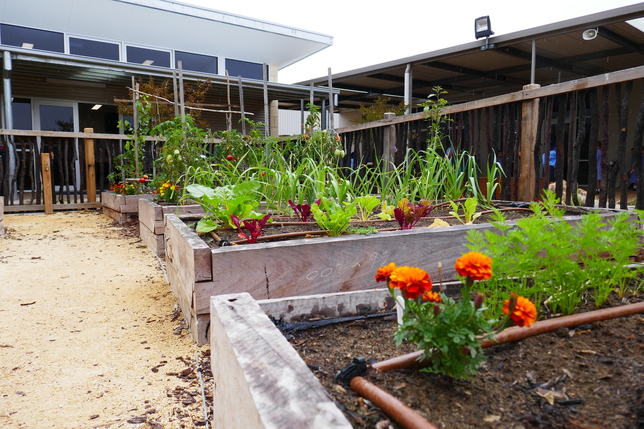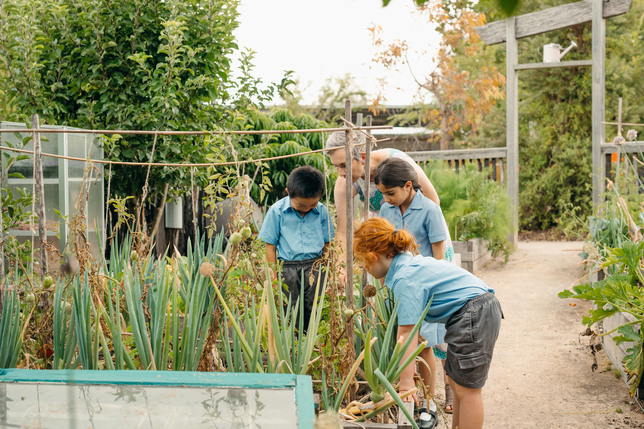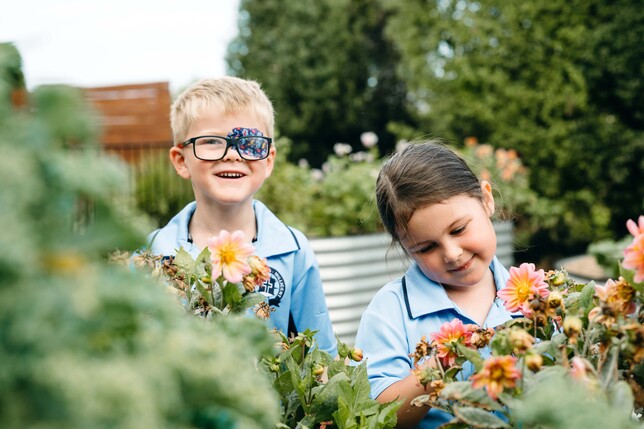Ecological Sustainability
The disposition of Ecological Sustainability is nurtured in our students via our evolving Nature Play space, which encourages curiosity, exploration and imaginative play. Children explore the Fish Pond, observe the changes occurring in our Frog Pond, care for our Chooks, tend the Orchard, find peace in our Sacred Space and engage with the insects in our Butterfly Garden. We extend these experiences with nature through our Stephanie Alexander Kitchen Garden program and our comprehensive recycling initiatives.
Stephanie Alexander Kitchen Garden Program
The Stephanie Alexander Kitchen Garden Program is the centrepiece of our commitment to sustainability. Our Kitchen Garden programs allow students to see firsthand how tending a garden and cooking healthy meals with home grown seasonal produce can lead to a sense of well-being, health, and connection to the land. Through hands-on experiences like these, the disposition of ecological stewardship is prompted to grow and become embedded into children’s understanding of the world around them. In addition, food plays an integral part in the way we connect. Through meal preparation and shared lunches, children learn the importance of hospitality to their sense of connection and belonging.
Our Upper Primary students experience weekly gardening and cooking lessons where they grow, harvest, cook and share produce grown in our garden. Students are responsible for planting all seedlings and caring for the plants and garden, using their initiative to develop the success of their produce. Our Junior Primary students engage with our Kitchen Garden program in blocks of time throughout the year.
Young Environmental Leaders Program
Each year, several of our Upper Primary students are invited to be involved in the Young Environmental Leaders Program, an initiative provided by South East Natural Resource Management. The students participate in an Earthkeeper’s Camp in Naracoorte and plan and work on a project that encourages environmental sustainability throughout the year. Recent projects include the ‘waste mini bin challenge’, which involved our young leaders promoting the reduction of waste and correct disposal of recyclable products. At the 2018 Limestone Coast School Waste Reduction and Recycling Challenge awards, St Anthony’s was awarded 2nd in the ‘highest waste amount composted per capita’ and 1st in ‘most recyclables per capita’.
Recently, our youngest students have taken the initiative to form a group called the “Clean is Our Dream Team.” The Dream Team promotes Nude Food at school, organises Environmental Crusaders who patrol the yard looking for rubbish and ensures organics are put into “Bomber’s Buckets.” Bomber is one of our local farmers who uses our organics scraps to supplement his pig and chicken feed.
Nude Food Lunchboxes
|
A WASTE-FREE LUNCH Pack
|
A DISPOSABLE LUNCH Avoid
|
St Anthony’s encourages wrapper free lunchboxes, an initiative that has seen a dramatic decrease in schoolyard litter and increased awareness in the use of finite resources.
School Recycling
Each class has a recycling bin as well as a bucket for composting. The waste disposal in the classrooms match that of the rubbish bins system. By encouraging correct waste disposal students consider the resources they are using and the ways to manage waste. Each class has a recycling bin as well as a bucket for composting. The waste disposal in the classrooms match that of the rubbish bins system. By encouraging correct waste disposal students consider the resources they are using and the ways to manage waste.





